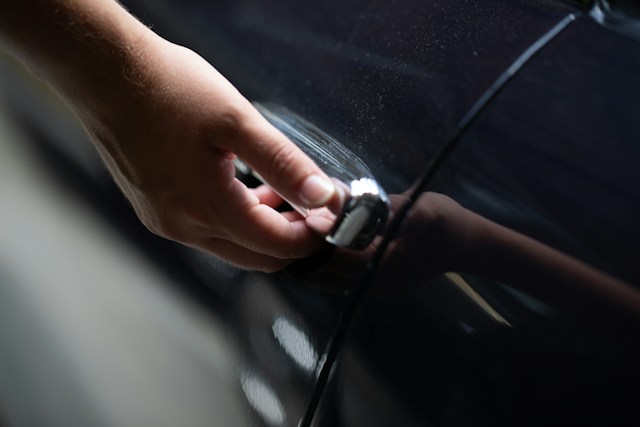
Tips for Preventing Car Key Battery Failure and Replacement
Convenience and security are what make key fobs an essential part of contemporary vehicle operation. Nevertheless, the effectiveness of these key fobs highly relies on battery health. Car key battery failure is an issue that tends to be inconvenient and unanticipated, leaving people stranded or locked out in their cars. In an attempt to limit the potential inconveniences and costs involved in replacement, proactive steps must be taken to ensure the long life of car key batteries. In this guide on preventing car key battery failure and increasing the lifespan of these essential components, we will discuss several tips and practices that could help achieve such goals.
Before discussing preventive steps, it is necessary to understand the fundamentals of car key batteries. In modern cars, most of keys utilise lithium coin cell batteries in the form of CR2032 or CR2025. The batteries are small but mighty, giving the energy needed to broadcast signals and run on the fob key. On the other hand, just like all batteries they are also limited in their lifetime and have several factors that can speed up deterioration.
Regularly Check Battery Voltage
Don’t look at us funny, this is helpful! The easiest yet efficient preventive measure is to regularly check the voltage of the battery in the car key. It is advisable to measure the voltage with a multimeter at least every couple of months. Generally, a good CR2032 battery measures about 3 volts. The reduction in voltage may occur if the battery is slowly losing its charge and it should be replaced soon. Regular inspection enables proactive replacement before the battery malfunctions completely.

Store Your Keys Properly
The battery life can also be affected by your way of storing it. Do not leave your keys in high temperatures, especially if they are exposed to the sun or very cold conditions. The high temperatures can boost the discharge rate of the battery while cold ones decrease efficiency. To prevent key interference, store your keys in a cool dry place away from the direct sunlight and electronic devices that may disturb signal transmission.
Use the Key Fob Wisely
Continuous pressing of fob key buttons may increase the rate at which batteries are drained. Even if pressing the buttons is attractive, especially during range testings or checkups on lock/unlock processes for a vehicle not justifications to do so unnecessarily can upset the battery. Do not use the key fob indiscriminately, and refrain from pressing buttons unnecessarily. Further, ensure that the button is pressed and released completely because pressing it down can also use up more battery power.
Keep Spare Batteries on Hand
Preparation is always the most important preventive measure against unforeseen inconveniences. It is advisable to keep additional car key batteries handy, especially when making a long trip. Keeping a set of spare batteries handy makes the process simple and quick to avoid being left with no access because all key fob battery is depleted. Make sure that the spares are stored in a cool and dry environment to keep them fresh.
Clean the Key Fob
Dust and dirt gather around the keys as well in a key fob which may cause interference with electronic components plus damage to battery life. It is advisable to frequently clean your key fob with a soft cloth or cotton swab. However, do not overdo the use of moisture as it may permeate into the internals and destroy them. This can ensure that the key fob remains clean, even improving its functionality and making longer battery life possible.
Optimise Keyless Entry Systems
If one car is equipped with a keyless system of entry, then some additional measures can be implemented to increase the efficiency of these devices and reduce battery consumption. Some of the keyless entry systems allow users to adjust system sensitivity. If possible, select a level of sensitivity so that the system does not overreact eliminating unwanted activations and doesn’t consume battery life.
Address Electrical Issues Promptly
Did you know that any electrical problems in your car will affect the key fob and its battery? Immediate action must be taken on all anomalies such as flickering lights or faulty central lock systems not forgetting other electronic components. Ignoring such issues can lead to a greater amount of pressure in the battery and faster disintegration of it.
Use Manual Entry Occasionally
While this is not common, doing manual entry once in a while for battery maintenance can be suggested. In case your vehicle incorporates a typical key entry system, you may sometimes utilise it. This reduces the requirement for electronic components and improves the service life of the battery in the key fob.

Perform Software Updates
Sophisticated vehicles may receive software updates from the manufacturer via some advanced key fob systems. These updates may be optimisations and improvements that can help make the key fob more efficient in saving battery. Ask your car manufacturer for information on the availability of software updates and make sure that your vehicle has an updated system.
Consult the Vehicle Manual
All vehicle and key fob systems are different. Turn to your car’s manual for particular recommendations and instructions concerning the key fob battery. The manual could contain details about battery replacement intervals, handling protocols, and any unique characteristics or special provisions concerning your vehicle’s key fob system.
To conclude, the prevention of car key battery failure includes awareness, preventive actions, and positive usage. To improve the longevity of your car key battery and prevent unplanned outages, make sure you follow all these recommendations from this guide. Key aspects that are necessary for the best functioning of your car key fob include regular checks, proper storage, judicious usage, and addressing problems as they arise.